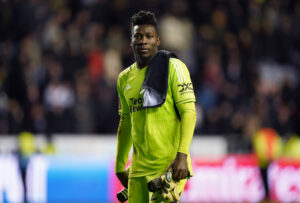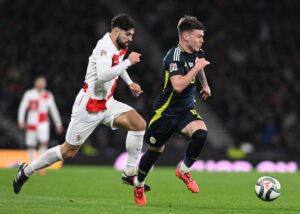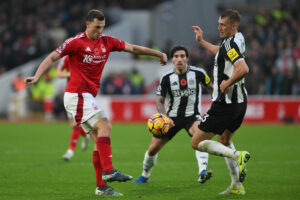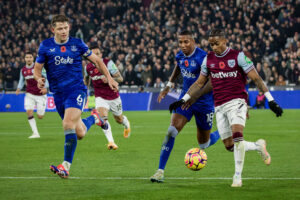For a coach to take over a club halfway through a season and lead them to a trophy, as Mikel Arteta did at Arsenal last season, is remarkable enough. For Arteta to have done so in the 2019/20 season, which will surely be remembered forever as ‘the Coronavirus season’ (or at least ‘the first Coronavirus season’ if a vaccine is not forthcoming soon), is even more remarkable. That is why, for the first time in many years, Arsenal fans are genuinely optimistic going into the new season. Their reasoning is that if Arteta can achieve what he has already achieved in just over six extraordinary months in the job, what might he be capable of over the course of a whole season?
What Can Mikel Arteta Achieve in a Full Season?
Arteta’s Success Streak Continues
In fact, Arteta’s incredible success streak has continued over the summer, during the shortest off-season ever, as he has benefited hugely from two further developments at Arsenal. First, Raul Sanllehi, the former Head of Football at Arsenal, has left the club, which means that Arteta himself is now the de facto Head of Football, as any self-respecting head coach or manager should be. Secondly, Arteta has effectively been promoted, as Arsenal’s new Chief Executive, Vinai Venkatesham, who was himself promoted after Sanllehi’s departure, confirmed this week that he is no longer a mere head coach but is now the Arsenal manager.
The debate about the difference between a head coach and a manager will probably go on forever, but there is at least one important distinction between the two job titles. A manager, rather than a head coach, not only manages the side in terms of leading it but in terms of coping with any unforeseen events. Obviously, Coronavirus was the ultimate unforeseen event. However, as he demonstrated in leading Arsenal to FA Cup success just over a month ago, Arteta has coped with it, and everything else that he has faced, beautifully.
Steely Will and Tactical Sophistication
It is that pragmatism, that determination to make the most of whatever resources he possesses, that has proven that Arteta really is a manager rather than just a coach. Although he has yet to make major progress in the league, as shown by Arsenal only finishing eighth in the Premier League table last season, the two victories over Manchester City and Chelsea in the FA Cup semi-final and final respectively showed a steely will and even more importantly a tactical sophistication that augurs well for the Gunners’ future.
Put simply, in those two FA Cup matches, Mikel Arteta achieved in six months what his two immediate predecessors, Arsène Wenger and Unai Emery, had failed to achieve in the previous decade. First, he made Arsenal much harder to beat, by instilling a collective defensive discipline that had seemed unimaginable at the end of the two previous managers’ reigns. Then, even more impressively, he got Arsenal to start playing the kind of decisive, effective, counter-attacking football that made the absolute most of their one undoubted world-class player, Pierre-Emerick Aubameyang.
The two length-of-the-field team goals that Arsenal scored against Manchester City and Chelsea at Wembley, with Aubameyang finishing off spectacular build-up play that had begun at the other end of the pitch, proved that Arteta was not just a defensive manager, in the mould of a George Graham, but was capable of producing the kind of beautifully efficient team play that had been the hallmark of Wenger’s very best early sides.
Doubling Down in Defence
Mikel Arteta has continued to manage – as in, cope effectively with everything thrown at him – throughout the short summer break. William Saliba, the highly-rated French centre-back, had already been signed from Saint-Étienne last summer before he was immediately loaned back there for another season. However, Arteta has doubled down, as it were, on strengthening the centre of his defence by signing another young and promising central defender from the French League in the form of Gabriel, the Brazilian signed from Lille. Together, Saliba and Gabriel could form the first really impressive Arsenal centre-back pairing since the Invincibles duo of Sol Campbell and Kolo Touré more than 15 years ago. At the very least, by introducing not one but two new central defenders to the squad simultaneously, Arteta is reducing the pressure that there would have been on one individual signing.
With Saliba and Gabriel joining Arsenal at the same time, Arteta is beginning to stockpile centre-halves in the way that George Graham did nearly 30 years ago. With Rob Holding and Kieran Tierney having already excelled alongside David Luiz as part of a three-man defence, Arteta is doing what every new manager says they will do but so few actually do, namely building his team from the back. Any combination of two from Saliba, Gabriel, Holding and Tierney should be strong enough to contain most Premier League attacks, with Arteta retaining the option of reverting to three centre-backs for more difficult games, especially away from home.
Shoring Up the Midfield
Similarly, Arteta has shored up his midfield, or at least his first-choice midfield partnership, by securing Dani Ceballos on loan from Real Madrid for another season. As Danny Murphy, who was himself a fine midfielder in his time at Liverpool and Tottenham Hotspur, said during the BBC coverage of the FA Cup final, although Aubameyang was the undoubted man of the match for his two goals, Ceballos nearly matched him for overall importance, such was his command of midfield. The Spaniard has already built up an almost intuitive partnership with Granit Xhaka, another player who has improved out of all recognition under Arteta.
Even if Arsenal are still likely to sell one or both of Matteo Guendouzi and Lucas Torreira, the two midfield signings made in the early days under Unai Emery, Mikel Arteta will believe that he has ready-made replacements in the form of Ainsley Maitland-Niles and Joe Willock. The two Academy graduates can form another midfield combination similar to that of Xhaka and Ceballos, with the former mainly shielding the back four and the latter orchestrating the team’s attacks from further forward.
But Aubameyang Must Sign
Finally, we come to the elephant in the room or, to mix animal metaphors, the one fly in the ointment – Aubameyang’s new contract. Various reputable news sources, including The Athletic and the BBC, are confidently reporting that Aubameyang will sign a new deal to stay at Arsenal for what will effectively be the remainder of his career. However, until he actually signs it, there will be many Arsenal fans fearful that he will still follow in the footsteps of Robin van Persie and Alexis Sanchez and leave the club.
However, assuming that Aubameyang does remain at The Emirates, he will become the third “A” in the Gunners’ new “Triple A” era, that of Arsenal under Arteta and Aubameyang. The Gabonese has conclusively proved that he is a truly great striker with his recent hat-trick of goal-scoring performances at Wembley, with two goals each against Manchester City and Chelsea in the FA Cup, and against Liverpool in the Community Shield (if one counts his match-winning penalty against Liverpool as yet another goal).
Aubameyang is the difference between Arteta’s Arsenal being a fairly functional side that deservedly finished eighth last season and one that can now genuinely compete for a return to the Champions League after four seasons out of it, either through securing a top-four place in the Premier League or by winning the Europa League. He is that important to the team. And although Arsenal do have some quality back-up in attack in the form of Alexandre Lacazette and Gabriel Martinelli, if Aubameyang were to leave at the last minute (and the transfer window this year remains open until October) or suffer a serious injury of the kind that he has largely avoided throughout his career, the whole Arteta Project would be seriously jeopardised.
For now, though, assuming that Aubameyang does stay and remains largely injury-free next season, Mikel Arteta has begun to put in place the kind of secure defence and controlling midfield that will allow the striker to flourish. And that is why, for the first time in more than a decade, Arsenal fans are hopeful that their team can be a major player in both the Premier League and European competition.
Main Photo






